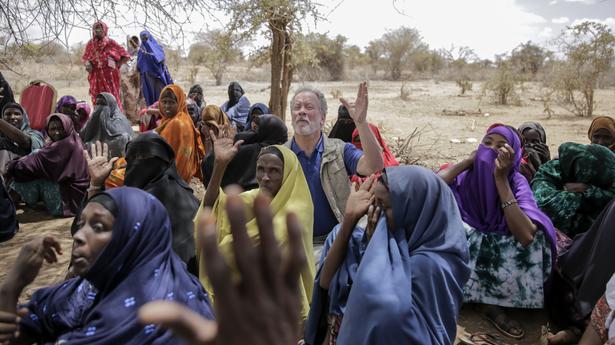
U.S. buying big Ukraine grain shipment for hungry regions: U.N.
The Hindu
The head of the World Food program says the United States is stepping up to buy about 1,50,000 metric tons of grain from Ukraine in the next few weeks for an upcoming shipment to hungry areas of the world
The United States is stepping up to buy about 1,50,000 metric tons of grain from Ukraine in the next few weeks for an upcoming shipment of food aid from ports no longer blockaded by war, the World Food Program chief has told The Associated Press.
The final destinations for the grain are not confirmed and discussions continue, David Beasley said. But the planned shipment, one of several the U.N. agency that fights hunger is pursuing, is more than six times the amount of grain that the first WFP-arranged ship from Ukraine is now carrying toward people in the Horn of Africa at risk of starvation.
Beasley spoke Friday from northern Kenya, which is deep in a drought that is withering the Horn of Africa region. He sat under a thorn tree among local women who told the AP that the last time it rained was in 2019.
Their bone-dry communities face yet another failed rainy season within weeks that could tip parts of the region, especially neighboring Somalia, into famine. Already, thousands of people have died. The World Food Program says 22 million people are hungry.
“I think there’s a high probability we’ll have a declaration of famine” in the coming weeks, Beasley said.
He called the situation facing the Horn of Africa a “perfect storm on top of a perfect storm, a tsunami on top of a tsunami” as the drought-prone region struggles to cope amid high food and fuel prices driven partly by the war in Ukraine.
The keenly awaited first aid ship from Ukraine is carrying 23,000 metric tons of grain, enough to feed 1.5 million people on full rations for a month, Beasley said. It is expected to dock in Djibouti on August 26 or 27, and the wheat is supposed to be shipped overland to northern Ethiopia, where millions of people in the Tigray, Afar and Amhara regions have faced not only drought but deadly conflict.











